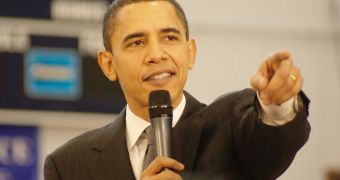A new study by researchers at the University of Kent has just determined that leaders of all types tend to seek positions of authority in order to help others. These individuals can and do lead based on this fact, the experts say, giving the example of presidents Barack Obama and Nicolas Sarkozy, and that of British Prime Minister David Cameron. Naturally, the researchers acknowledge, some leaders still want to harness the perks of power in order to garner status and dominance, AlphaGalileo reports.
“Our results suggest that leadership is a way for people to be helpful and engender coordination and cooperation between others. This paints a much more positive view of leadership than is typical, and we were surprised by how clear cut the results are. In both the games we looked at, everything points towards selfless rather than selfish leaders. This really challenges the way we think about leaders,” explains University of Kent School of Economics senior lecturer Dr Edward Cartwright.
The expert conducted the recent investigation with the help of colleagues Joris Gillet, from the University of Osnabrueck, and professor Mark van Vugt, who is based at the VU University, in Amsterdam. With the publication of the new study, which appears in the latest issue of the esteemed scientific journal Personality and Individual Differences, old theories about leadership are vehemently challenged. Additionally, the work also questions some of the leading ideas meant to explain how leaders “work” and what their reasons are.
“Our data supports the view that leadership emerged in human societies as a social good. Yet this does not mean that leaders will not abuse their power once they find themselves in charge of a group – in fact many do. But for every Mugabe there is a Mandela and the latter is much closer to the way we want our leaders to be: fair, inspiring and servant,” says Van Vugt, a Honorary professor at the university, and also the coauthor of the journal entry. In the experiments conducted at Kent, it was revealed that leaders are more likely to be rated by others as pro-social rather than selfish, which is a result that surprised the science team as well.

 14 DAY TRIAL //
14 DAY TRIAL //